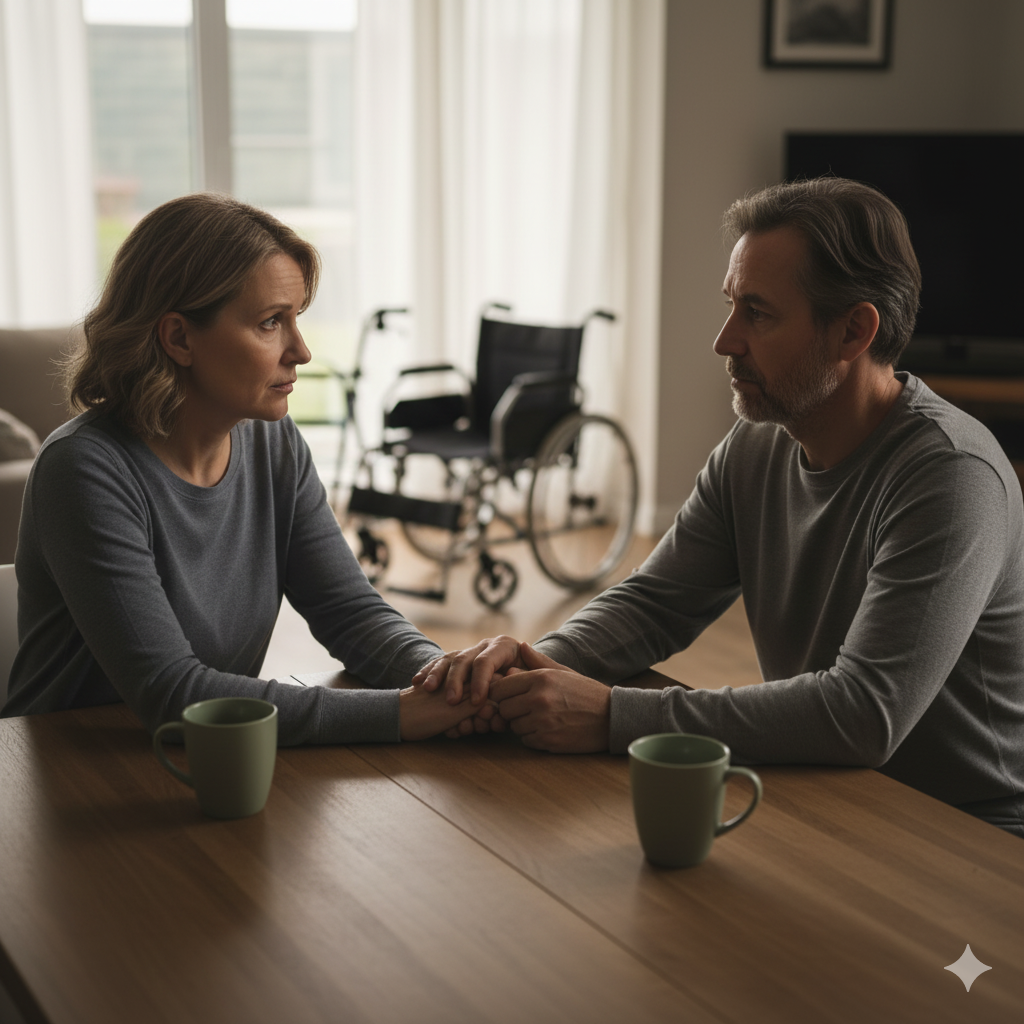

Parkinson’s disease affects more than physical movement. It touches communication, emotions, and the very foundation of relationships. For many couples, what begins as a medical diagnosis can slowly turn into a shared life challenge that tests patience, love, and understanding.
It is natural to wonder whether Parkinson’s can damage or even end a marriage. The truth is that while it can create stress and strain, it can also strengthen a partnership when both people are willing to adapt, communicate, and grow together.
At The Center for Movement Challenges, we often meet couples who are rediscovering how to connect while facing new realities. This article offers insight and encouragement for partners navigating Parkinson’s together.
Parkinson’s can change how couples interact and function as a team. These changes may develop gradually or arrive all at once after diagnosis. Common challenges include:
Each of these shifts can leave one or both partners feeling lost, disconnected, or uncertain about what comes next.
When Parkinson’s symptoms increase, communication often decreases. Couples may start talking less because they are afraid of upsetting each other or do not know how to describe what they feel.
Healthy communication does not mean avoiding difficult topics. It means learning to talk through them openly and compassionately.
Here are a few practical strategies:
Simple conversations can prevent resentment and strengthen emotional trust.
One of the hardest parts of Parkinson’s is when one partner begins to feel more like a caregiver than a spouse. That shift can affect self-esteem, intimacy, and identity for both people.
To preserve balance in the relationship:
Remember that love and care are not the same thing. You can be both a caregiver and a partner, but they require different kinds of energy.
Physical connection often changes after Parkinson’s diagnosis, but intimacy is about more than physical touch. It includes affection, communication, humor, and shared experiences.
Consider the following ways to stay connected:
If intimacy feels difficult to discuss, a therapist or support group can help create a safe space for both partners.
Supporting someone with Parkinson’s can be deeply meaningful, but it can also lead to burnout if self-care is ignored. You cannot be a strong partner if you are physically and emotionally drained.
Try to:
At The Center for Movement Challenges, we encourage both partners to participate in our online Parkinson’s exercise classes. These sessions build strength, confidence, and connection, helping both people move together with purpose.
If tension, resentment, or sadness begin to feel constant, it may be time to bring in outside help. Couples counseling or therapy can provide tools to rebuild communication and set healthy expectations.
Professional guidance can help you:
You do not have to wait until the relationship feels broken. Seeking help early can prevent long-term strain.
Our programs are designed for both people with Parkinson’s and their care partners. Through online classes, we focus on improving mobility, posture, and energy levels, while also providing connection and encouragement.
Movement has a powerful way of rebuilding confidence and restoring teamwork between couples. When both people move together, they communicate without words and remember that they are still a team.
Visit www.centerformovementchallenges.org to learn how you and your partner can participate.
Parkinson’s will change your relationship, but it does not have to end it. Many couples discover new ways to connect, new depths of understanding, and a renewed sense of love as they face this journey together.
The key is communication, balance, and shared movement. When you nurture both your relationship and your health, you can face Parkinson’s with unity and strength.
If Parkinson’s has affected your marriage or partnership, you are not alone. Healing starts with small steps. Join our community at www.centerformovementchallenges.org and discover how movement, support, and teamwork can bring closeness back into your relationship.
You and your partner can move through this journey together, stronger, connected, and confident.

